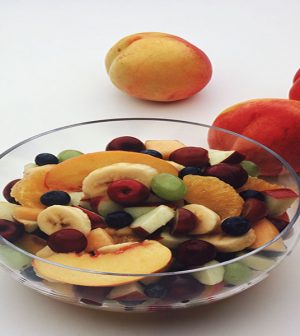- Could Your Grocery Store Meat Be Causing Recurring UTIs?
- Are You Making This Expensive Thermostat Error This Winter?
- Recognizing the Signs of Hypothyroidism
- 10 Strategies to Overcome Insomnia
- Could Artificial Sweeteners Be Aging the Brain Faster?
- Techniques for Soothing Your Nervous System
- Does the Water in Your House Smell Funny? Here’s Why
- Can a Daily Dose of Apple Cider Vinegar Actually Aid Weight Loss?
- 6 Health Beverages That Can Actually Spike Your Blood Sugar
- Treatment Options for Social Anxiety Disorder
How to Rebalance Your Carb Intake

There’s no doubt that eating a lot of sugar isn’t good for your health. What’s more, sugar can trigger a chemical reaction that has you craving more and more. Just think about the last time you ate a cookie — were you able to stop at one? Or three? Or 10?
But Harvard researcher David Ludwig says when it comes to carbs, Americans eat more refined grains and potatoes than sugar, and these starchy foods, which also include white bread and white rice, raise blood sugar and insulin levels, increasing the risk of chronic medical conditions while setting the body on the path to weight gain.
This isn’t to say that sugary foods are any better for you than starchy ones. Instead, the goal is to cut back on processed carbohydrates in favor of whole ones — fruits, vegetables, legumes and minimally processed grains — and to add in some healthful fats like nuts, avocado and olive oil.
Cutting back can be hard, but a study published in the journal Appetite found that replacing even small amounts of carbs — fewer than 10% — with healthy fats at a meal keeps you satisfied for hours longer and keeps blood sugar on a more even keel.
Participants ate a rebalanced breakfast, switching from a meal that had 55% calories from carbohydrates, 18% calories from protein and 27% calories from fat to one of 43% calories from carbohydrates, 18% calories from protein and 39% calories from fat. They still felt satisfied three to four hours later.
And in more good news, separate research, published in Obesity Reviews, found that cutting back, whether on carbs or on unhealthy fat, leads to a decrease in cravings, making it easier to stick with your plan than you might have thought.
More information
The American Heart Association has more on choosing the best fats.
Source: HealthDay
Copyright © 2026 HealthDay. All rights reserved.










